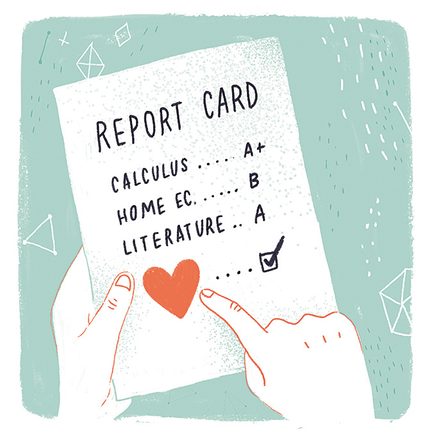How to Teach Children Compassion
Making sure our kids understand how to care for others is just as important as the three Rs. Here’s what you need to know.

Nine years ago, Harvard University psychologist Richard Weissbourd noticed a disconnect. Conversations he’d had with parents across a range of cultures indicated that they prioritized caring and compassion in their kids above other virtues such as achievement. But Weissbourd was hearing otherwise from many of the kids themselves. “A lot of kids weren’t really focused on the common good or caring for other people,” he says.
Nearly a decade of exhaustive data gathering later, Weissbourd and his colleagues discovered that whatever parents may say their priorities are, most kids aren’t getting the message. In the Harvard group’s survey of more than 10,000 middle- and high-school-aged American youth, published this year, approximately 80 per cent said their parents were more concerned with achievement or happiness than caring for others. Luckily, experts say it’s easy to cultivate caring in yourself and others. Here’s how to do it.
Shift the Conversation
Pushing kids to get good grades is practically encoded into parental DNA, and it’s hard to believe urging children to pursue their own happiness could be bad. “We’re all for achievement and happiness,” says Weissbourd. “I’m just concerned we’re out of balance.” Try telling your kids it makes you happy to see a stellar report card but even happier to know when they have done something kind.
Consider the Small Cues
Caring and kindness should be baked into family life-kids should be expected to set the table and do the dishes. “You don’t need to praise those things,” Weissbourd says. Yet the right kind of feedback-praising the uncommon good deed-can have lasting influence. Instead of thanking your teenager for watching her little brother, try telling her you’re proud of her efforts to befriend a lonely student at school or going out of her way to help your neighbours shovel out their car after a storm.
“The research shows that when you give kids statements about their character-that you’re doing this because you’re a caring person and that’s how I see you-then that’s more likely to become part of their identity,” says Kimberly Schonert-Reichl, an applied developmental psychologist at the University of British Columbia.
And the Big Cues, Too
It might seem obvious, but studies have shown that parents who model pro-social behaviour-that is, the opposite of anti-social behaviour-are much more likely to raise kids with the same positive values. “Families that help poor people, cook Christmas dinner for the homeless or undertake any of these ‘pitching in and doing it’ activities will help kids learn to be concerned for others,” says Joan Grusec, professor emerita of psychology at the University of Toronto. Make time for empathetic pursuits, and your kids will, too.
Follow Up
Find out whether your methods are working by asking for a second opinion. “Parents go to parent-teacher conferences, and the whole conversation is about academic achievement. Often, the teacher doesn’t say anything about whether the kid is a good citizen, a good person, fair, has high integrity,” says Weissbourd. Parents should ask; teachers should tell, prompted or not.
Getting Results
And just in case the nagging voice in your head is concerned that your child’s achievement levels or personal happiness will slip if they prioritize others, emphasizing caring often improves both. Schonert-Reichl’s research shows that children who were instructed to perform three acts of kindness a week reported increases in peer acceptance, which is strongly linked to both happiness and academic performance. Research shows that positive interaction with peers is an important predictor of career success, in part because social networking and collaborative work play a huge role in career advancement.
Most surprisingly, research from the United States and Canada shows that volunteering is correlated with a host of health benefits-including decreased depression, hypertension and cardiovascular risk-and that elderly adults who volunteer have 63 per cent lower mortality than non-volunteers.
Some groups, such as girls with underdeveloped self-esteem or children from immigrant families who are deeply involved in caring for relatives, warrant special attention and also need to learn to assert themselves. But for most kids, it’s never too early or too late to start encouraging these behaviours. Research from Yale University’s Infant Cognition Center indicates that infants can differentiate right from wrong, and even toddlers have the capacity for altruism. Teenagers, who often seem self-absorbed, have a highly developed sense of injustice that can be leveraged for good, Weissbourd says. “We’re saying you can achieve, be happy and be caring all at the same time.”



